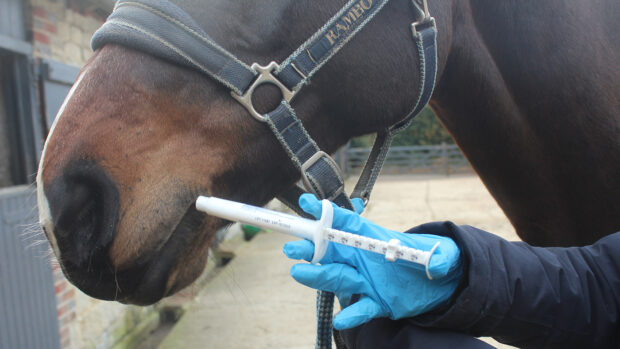A survey conducted in May as part of the National Equine Health Survey has shown that half of all horse owners are not worming their horse or pony correctly.
Only 50% of the 1095 respondents wormed their horse with an effective product for the control of encysted small redworm.
The remainder either used a product they incorrectly thought treated encysted small redworm or simply didn’t worm their horse at all to control the parasite.
The most common reason given for not treating for this type of worm was that the horse had had a clear faecal worm egg count.
“Encysted small redworm won’t show up in a standard faecal worm egg count – even if the horse has shown a negative or low count it could still be harbouring several million of this type of worm, which can present a potentially fatal health risk to the horse,” said Pfizer Animal Health’s Wendy Talbot.
Encysted small redworms can remain dormant inside a horse for up to two years, but usually develop and emerge from the gut wall all at the same time in the early spring.
Severe infestations can lead to a disease called “larval cyathostominosis”, causing diarrhoea and colic with up to a 50% mortality rate.
Horses should be treated against them during the late autumn or winter using a wormer licensed to treat encysted small redworm.
For more information about worming visit www.wormingyourhorse.info




